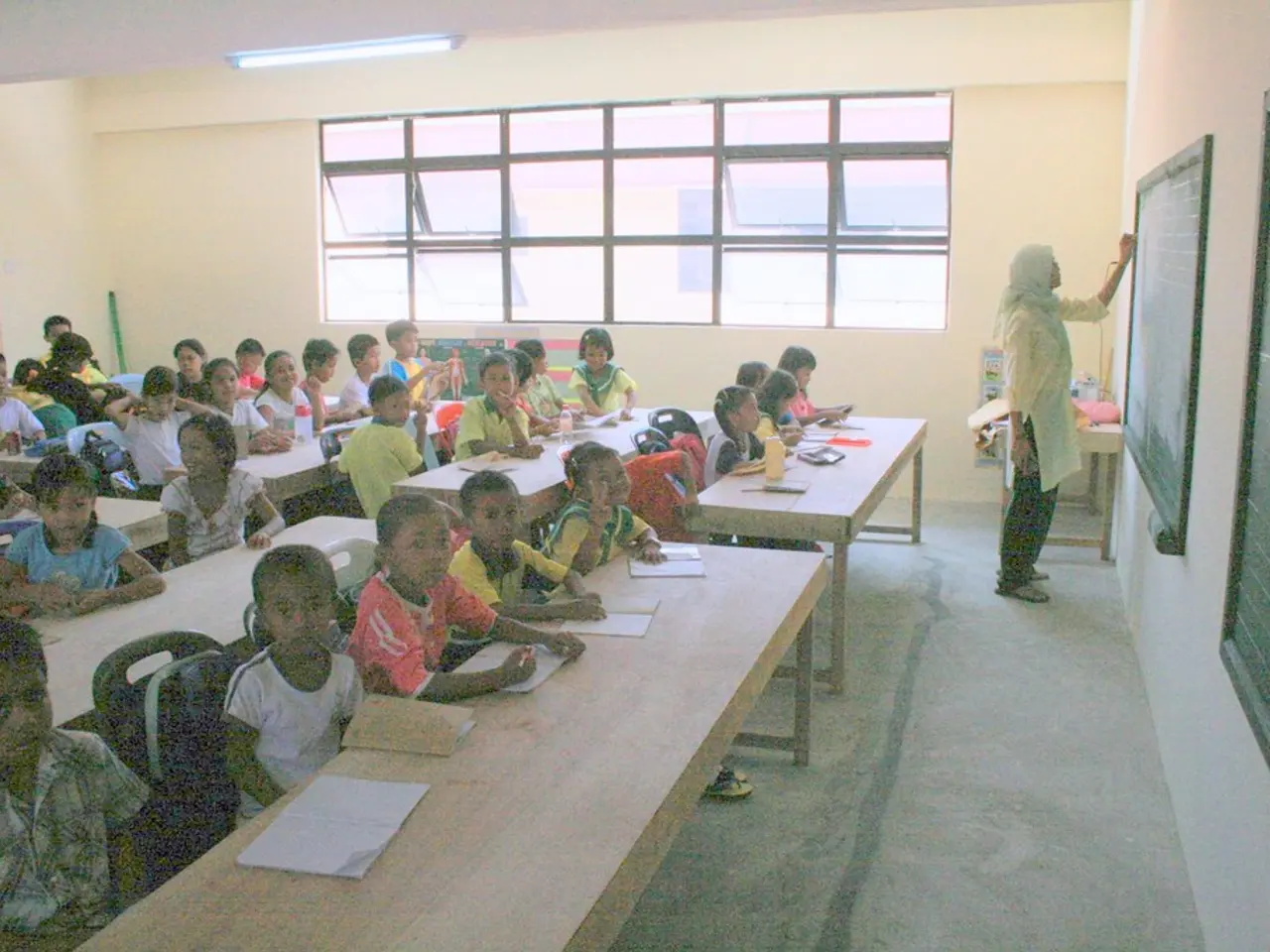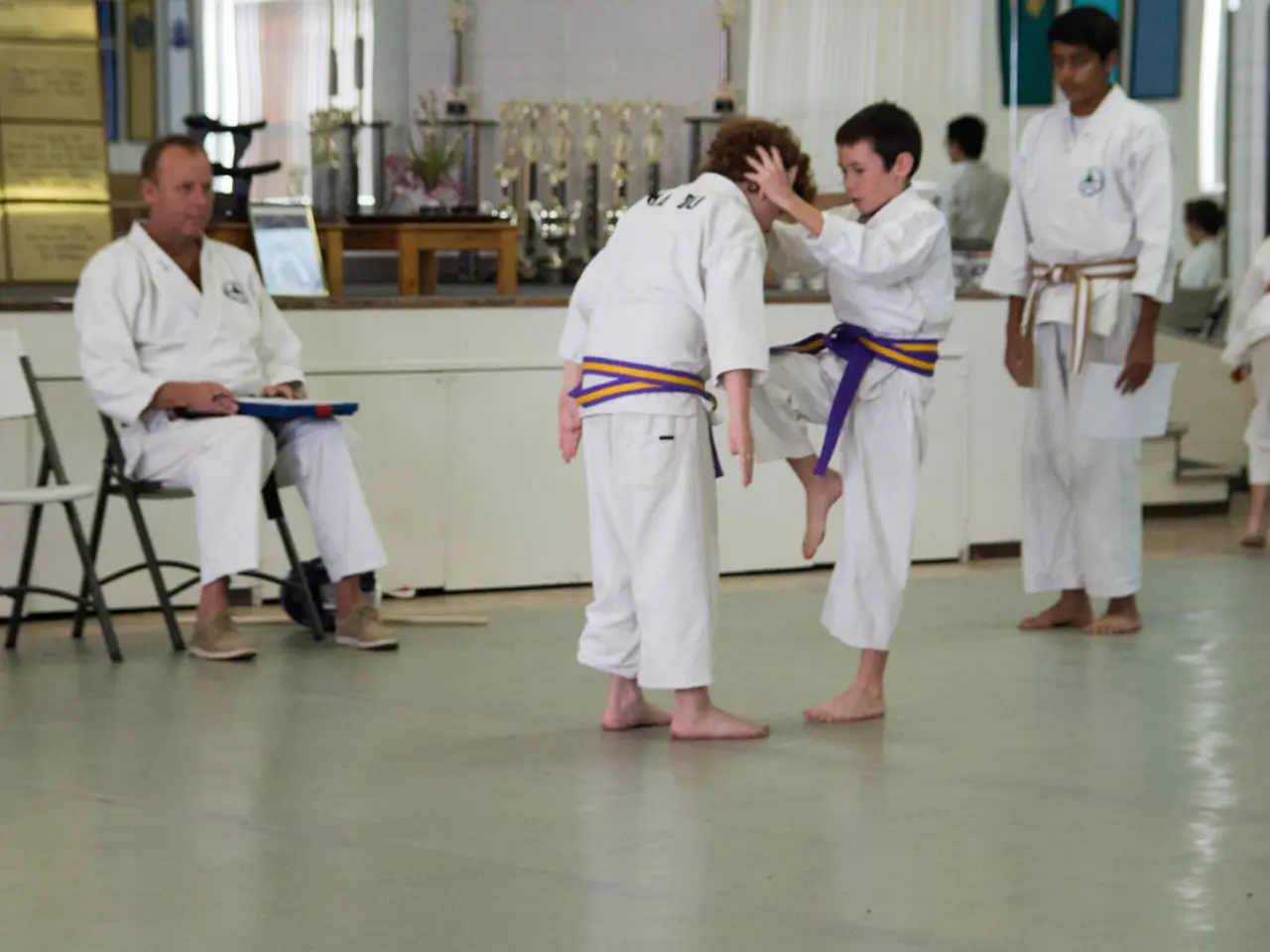Employing Technology for Vocational Education of Imprisoned Students
In a unique setting, the Placer School for Adults in California is making waves in K-12 education by offering a pure form of education driven by students' genuine interest in learning. This is particularly evident in the school's Career and Technical Education (CTE) programme, where technology plays a pivotal role.
Assistant Principal Amy Lloyd, who finds teaching incarcerated students to be one of the most rewarding jobs she's ever had, is at the helm of this innovative approach. She enjoys teaching in this environment more than any other setting in K-12 education. Her colleague, Michelle Beasley, the coordinator of curriculum, instruction, and programs, shares similar sentiments, finding the experience to be incredibly rewarding.
The school's strategy for CTE education in the digital age is centred around two key technologies: Nucleos tablets and iCEV's CTE curriculum. Nucleos tablets, secure and controlled devices tailored for use in correctional settings, provide digital access to educational content, including CTE programs, overcoming traditional barriers such as limited physical classrooms or restricted internet access.
iCEV's CTE curriculum, accessible on devices like Nucleos tablets, offers comprehensive, standards-aligned online CTE courses covering various technical and career skills. This partnership creates a bridge for incarcerated students to participate in engaging, flexible, and relevant CTE education, fostering digital literacy and workforce readiness despite the restrictive environment of incarceration.
The use of these technologies extends beyond the classroom. Once a class ends, incarcerated students have access to an online curriculum through a Nucleos tablet, allowing them to continue practicing what they learned during the week. The online curriculum provides access to iCEV's CTE curriculum, trainings, and certificate resources.
Chromebooks are also used daily in the classrooms at the Placer School. The use of digital tools helps students maximize hands-on sessions for CTE training. This approach advances educational equity by integrating digital tools specifically designed to meet the unique security and accessibility needs of correctional education programs.
Over the years, the digital offerings at the Placer School have increased, benefiting incarcerated students who can now study various skills ahead of time due to increased digital offerings. This increased digital access allows students to continue practicing what they learned in class during the week, improving their chances of employment upon release.
In conclusion, the Placer School's innovative use of technology in CTE education is transforming the lives of incarcerated students, offering them a chance to develop digital literacy skills, gain workforce readiness, and improve their chances of employment upon release. This approach, while unique, serves as a shining example of how technology can be harnessed to create equitable learning opportunities in unconventional settings.
- The Placer School's Career and Technical Education (CTE) programme, under the direction of Assistant Principal Amy Lloyd, utilizes a unique blend of technologies to enhance education.
- The school's strategy incorporates Nucleos tablets, secure devices designed for correctional settings, and iCEV's CTE curriculum, providing digital access to educational content and CTE programs.
- Apart from the classroom, students at the Placer School can continue their learning with the Nucleos tablets, accessing iCEV's CTE curriculum, trainings, and certificate resources online.
- In the classrooms, Chromebooks are also employed daily to maximize hands-on CTE training, furthering educational equity by catering to the specific security and accessibility needs of correctional education programs.




